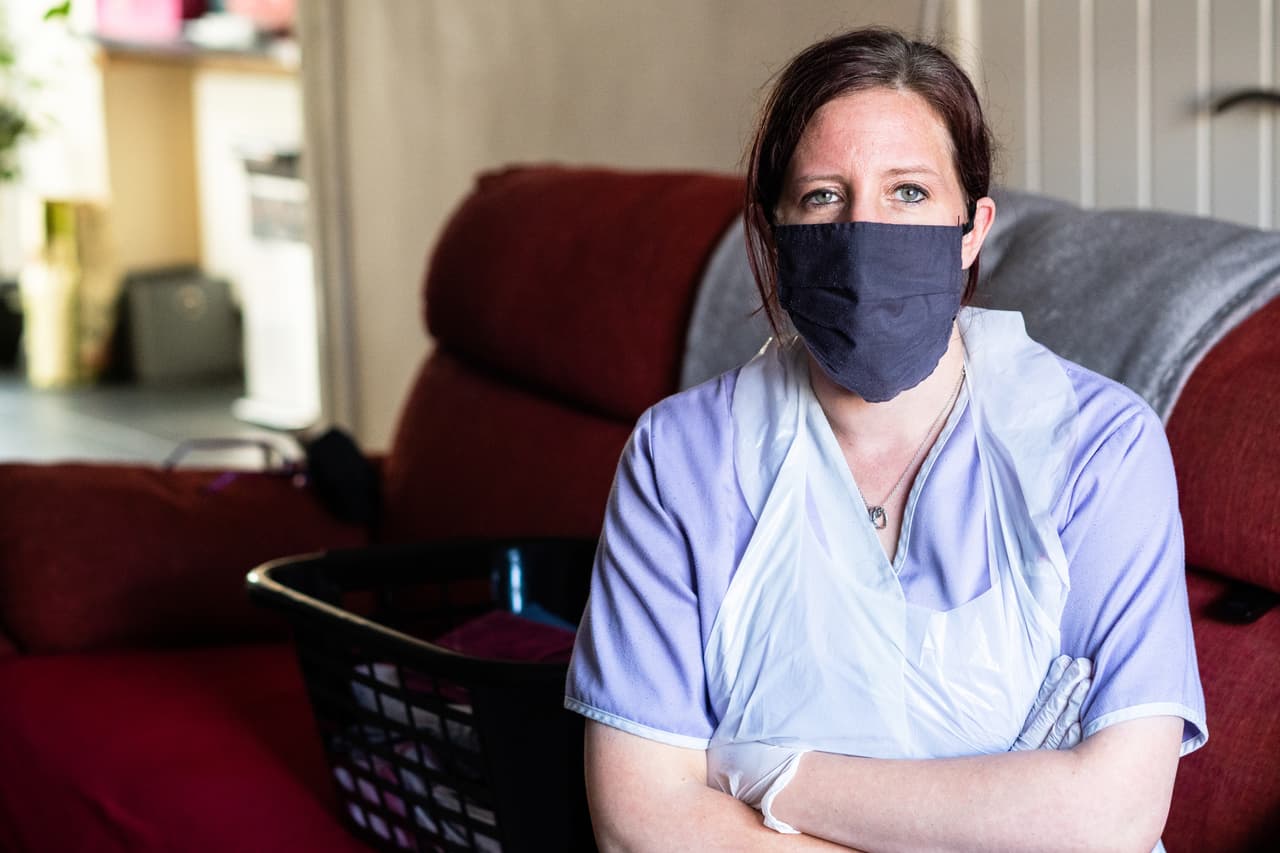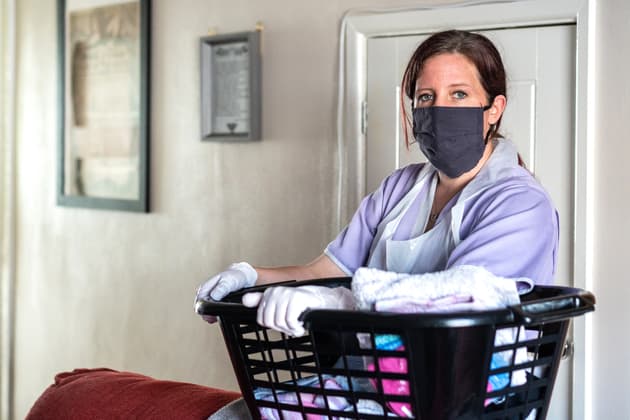
Too stressed to care: ‘We’re paid as terribly as we’re treated’
After being signed off sick while working for a council-commissioned care company, becoming self-employed felt like the only option, says Kiri Williams
People wonder why they can’t get carers – we’re paid terribly and treated just as bad.
I got paid only £4.50 for each half-hour call, and care companies are uncompromising. I had to clock in and out electronically by scanning a code on my clients’ files with my phone. If I had to leave 10 minutes early, the company docked those 10 minutes. But if I spent longer with a person, I would not get paid for that time.
It wasn’t easy to make enough to cover even my basic living costs. The most I ever got paid was £9 an hour; the least was £8.25. If I had earned that hourly rate throughout shifts, it would have been different, but I didn’t.
I have known carers who have had to hand back calls because they couldn’t afford the petrol to get there. And carers ask each other to borrow money – people have asked me, and I have had to do the same.
 Kiri worked from 6am to 10 at night
Jo Haycock
Kiri worked from 6am to 10 at night
Jo Haycock
On the road, I either got paid travel time or mileage – 17p or 20p per mile – but I was put under pressure. I was once given 10 minutes for a 45-minute drive. Unsurprisingly, I was late. The care company took the rest of my shift calls off me because I wouldn’t have got there on time, which meant I didn’t get paid for them. That wasn’t unusual.
I quickly realised the hours I had to put in to pay my bills would be impossible to sustain. I worked from 6am to 10 at night. My breaks were my driving time. If I had an hour’s lull, I would go to the nearest car park to not waste petrol and try to have a nap.
Even with those hours, my wages didn’t cover childcare costs. Sometimes the kids had to come with me in the car while I visited clients. I prayed I wouldn’t get spot-checked and hoped that if I did, the supervisor would say, “Don’t let me catch you again,” or turn a blind eye.
 Kiri says setting up her own business felt like ‘a huge risk’
Jo Haycock
Kiri says setting up her own business felt like ‘a huge risk’
Jo Haycock
Taking time off was also tricky. When I was on leave, the company was on the phone all day long, begging me to cover calls.
Caring can be fulfilling work, and it’s an important job, but it can also be emotional and stressful.
During a typical half-hour call, I would get someone up out of bed, wash them, give them breakfast and their medication, tidy up and make their bed, open their curtains, make them a snack and put it in the fridge for later, and maybe empty their catheter and clean their commode. The time pressure meant I had to prioritise the most important things, such as medication and hygiene.
I did all that in 30 minutes and got up to £4.50. Then I would go to another call, get verbally abused, told I’m rubbish, and again, it’s still £4.50. I would go to a call where someone has been in desperate need of medical attention and then go straight to the next and have to act as though nothing had happened.
In the end, it all caught up with me. I became unwell with stress, anxiety and exhaustion, and was signed off work.
A colleague quit and set up her own business as a self-employed home carer. Following her felt like a huge risk. But what did I have to lose?
As told to Nick Dowson
Desk editor: Emily Wilson
Investigations editor: Meirion Jones
Production editor: Emily Goddard
Community organising: Eve Livingston
Our reporting on jobs is part of our Bureau Local project, which has many funders. None of our funders have any influence over the Bureau’s editorial decisions or output.
Header image: Kiri Williams. Credit: Jo Haycock
-
Area:
-
Subject:




